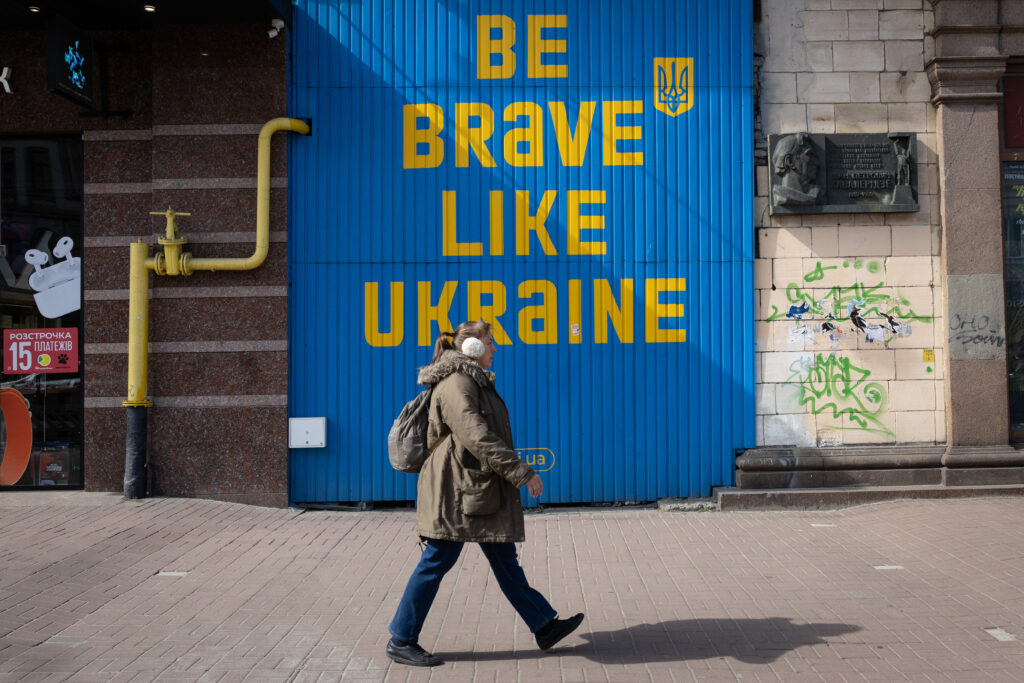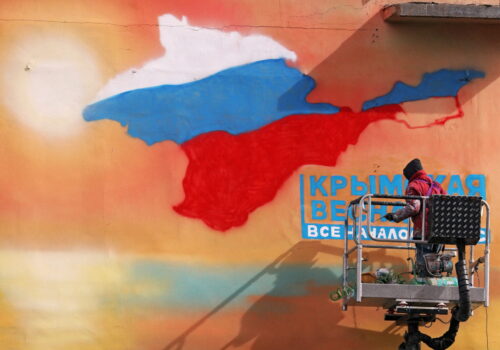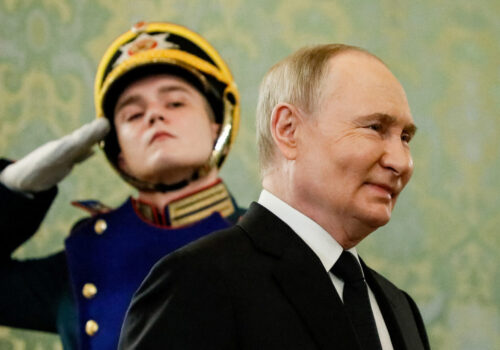The Ukrainian Parliament took another small but meaningful step on the road toward European integration in early June with the adoption of a new law officially establishing English as the language of international communication in Ukraine.
In line with this legislation, a wide range of Ukrainian government officials will now be expected to reach a degree of English language fluency, while various state services will be made available in English. The law also envisages expanded English language educational opportunities, and support for the screening of English language movies featuring subtitles rather than dubbing.
Ukraine’s recent decision to grant the English language elevated official status reflects a much broader national transformation that has been underway since the country first regained independence more than three decades ago. This historic process has helped transform the Ukrainian linguistic landscape.
In 1991, Ukrainian was officially recognized as the only state language of the newly independent country. In practice, however, Ukraine remained deeply embedded within a Russian language culture inherited from the Soviet era. This informal empire extended from schools to popular culture, with generations of post-independence Ukrainians growing up in an information space that was still dominated by Moscow.
While old imperial ties remained strong, only the privileged few could afford to travel to most Western countries. Strict visa regimes acted as an additional barrier to engagement with the Western world until Ukrainians finally secured visa-free travel to the EU in 2017. Despite these obstacles, the popularity of English language studies in the decades following 1991 reflected Ukraine’s growing openness to the outside world.
Stay updated
As the world watches the Russian invasion of Ukraine unfold, UkraineAlert delivers the best Atlantic Council expert insight and analysis on Ukraine twice a week directly to your inbox.
Research indicates that demand for English language learning has increased significantly since the start of Russia’s full-scale invasion in February 2022. This interest in language skills may at first glance appear somewhat unexpected, given the enormous challenges facing Ukrainian society over the past two years. For many Ukrainians it makes perfect sense. In wartime Ukraine, studying English is an attractive route toward greater personal development that can also provide opportunities to boost the country’s defense and support integration into the wider European community.
The war with Russia has dramatically underlined the importance of the English language as a tool for international communication. At the most immediate and practical level, knowledge of English has been a huge asset for Ukrainian soldiers and commanders learning new skills and encountering new weapons systems for the first time. Indeed, it was striking to see English language fluency specifically cited as a key requirement during discussions with Western partners over plans to train Ukrainian pilots.
Eurasia Center events

The same linguistic logic has applied to non-military engagement with international partners at the governmental and nongovernmental levels. As Ukrainians have sought to develop new relationships and address complex wartime issues with officials and volunteers from dozens of different countries, English language skills have proven absolutely crucial.
This deepening dialog is very much a two-way street. While greater English language proficiency is proving important for Ukrainians in their engagement with the international community, it is also allowing foreign partners to learn more from the Ukrainian side. In the military sphere, for example, no other country is currently able to match Ukraine’s experience in modern warfare. Speaking the same language makes it far easier to share this experience and pass on important lessons to allies.
As Ukraine moves closer to the rest of Europe and continues to make progress toward the goal of EU membership, the role of the English language within Ukrainian society will only increase. The recently adopted law on the status of English reflects this reality, and should help create an environment that supports the country’s broader Euro-Atlantic integration aspirations.
For centuries, Russia has used language as a tool to suppress Ukrainian independence and impose an artificial imperial identity on Ukrainians. By officially embracing English as the language of international communication, Ukrainians now aim to support their country’s historic pivot away from Moscow and return to the European community of nations.
Oleksiy Goncharenko is a Ukrainian member of parliament with the European Solidarity party.
Further reading
The views expressed in UkraineAlert are solely those of the authors and do not necessarily reflect the views of the Atlantic Council, its staff, or its supporters.

The Eurasia Center’s mission is to enhance transatlantic cooperation in promoting stability, democratic values and prosperity in Eurasia, from Eastern Europe and Turkey in the West to the Caucasus, Russia and Central Asia in the East.
Follow us on social media
and support our work
Image: A woman walks near a building with a huge inscription 'Be brave like Ukraine' in central Kyiv. Ukrainian capital is located away from the fighting places, but the presence of war is felt in the city and affects many aspects of the life of local residents. Russian troops entered Ukrainian territory on February 2022, starting a conflict that provoked the destruction of areas and humanitarian crisis. (Oleksii Chumachenko / SOPA Images via Reuters Connect)





